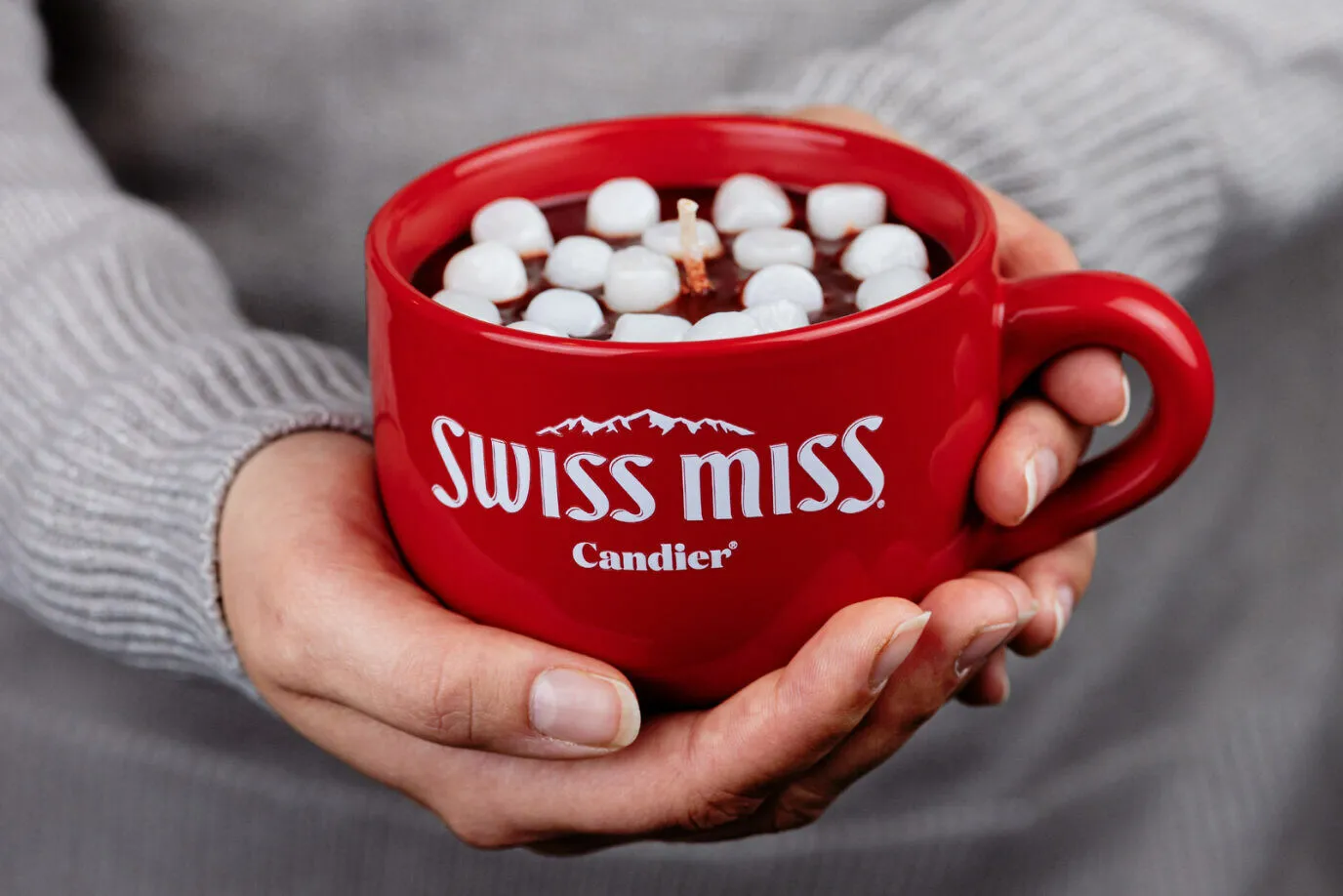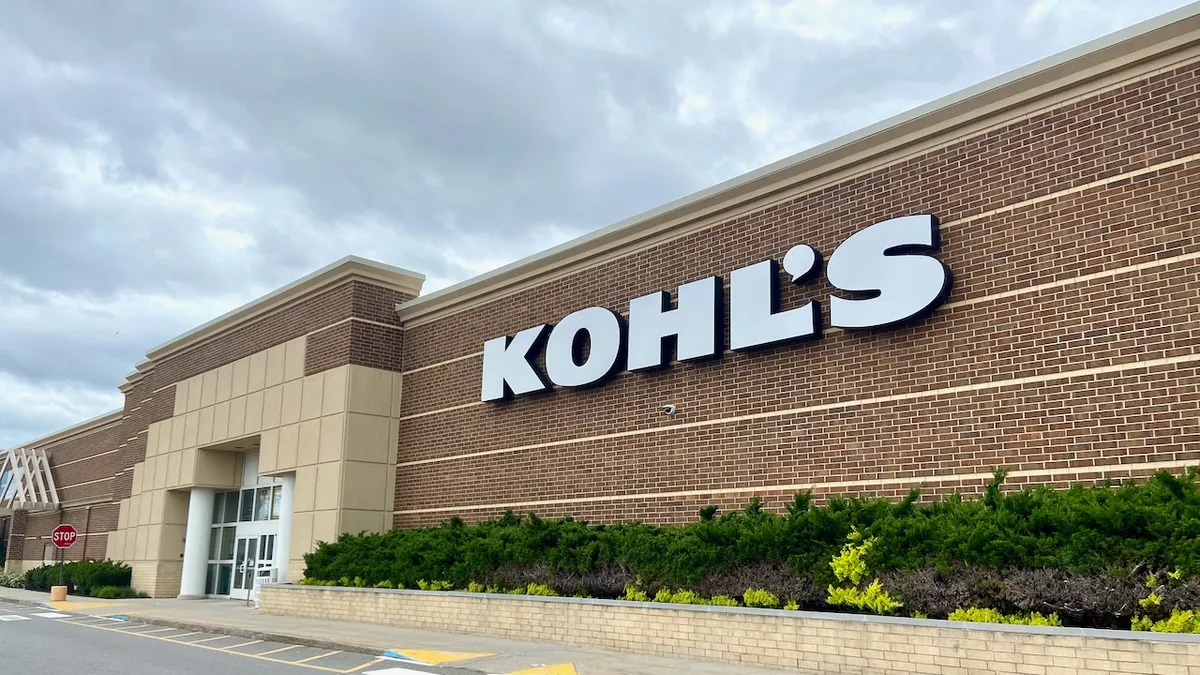It’s been another week with far more retail news than there is time in the day. Below, we break down some things you may have missed during the week and what we’re still thinking about.
From Milk Makeup’s owner facing a Nasdaq delisting to companies embracing the cozy season with new candle releases, here’s our closeout for the week.
What you may have missed
Kohl’s announces a board leadership transition plan
Kohls on Wednesday announced that, after 15 years, Board Chair Peter Boneparth will retire from the position in May. Michael Bender will succeed Boenparth upon his retirement. Bender has served on Kohl’s board since 2019.
Boneparth’s, “leadership skills, retail acumen and his deep understanding of finance have proved invaluable over the past several years, in particular, as the company navigated a unique set of complex challenges stemming from the global pandemic,” Bender said in a statement.
Additionally, Adolfo Villagomez, CEO of Progress Residential, has been appointed to the retailer’s board as an independent director. With his appointment, the board has expanded to 12 directors, 11 of whom are independent.
Milk Makeup, Obagi owner receives Nasdaq delisting notice
Waldencast, the company that owns Milk Makeup and Obagi, this week announced that on Oct. 31 the company received notice from the Nasdaq that it was at risk of being delisted from the stock exchange. Waldencast has fallen out of compliance with the Nasdaq’s listing rule that requires the timely filing of periodic reports with the Securities and Exchange Commission.
The company is working to complete and file its annual report for the fiscal year ended Dec. 31, 2022, “as soon as practicable.” Waldencast has requested a hearing with the Nasdaq over the notice, which will stay any suspension or delisting action for 22 days from the notification date. The company in its announcement added that “there can be no assurance, however, that the company’s requests for a further stay of any suspension action by Nasdaq and the continued listing of its securities will be granted by the panel, or that the company will be able to evidence compliance with all applicable requirements for continued listing on The Nasdaq Capital Market should the panel grant the company an extension to do so.”
Milk Makeup and Obagi went public in July 2022 through a transaction with Waldencast Acquisition Corp., a special purpose acquisition company — or SPAC.
T.J. Maxx, Marshalls to close 4 stores by early next year
In a statement sent to Retail Dive, TJX confirmed it was closing its T.J. Maxx locations in Brooklyn, New York, and South Canal Street in Chicago, as well as its Marshalls stores in the Bronx, New York, and North Clark Street in Chicago. The stores are expected to close by Jan. 6. The company offered store associates positions at nearby stores.
Andrew Mastrangelo, assistant vice president of global communications at TJX, said the company typically closes or relocates “a small number of stores each year.” This year, it opened 31 net T.J. Maxx and Marshalls stores, with plans for more before the end of the year.
Athleta debuts experiential fitness series
Athleta will launch a new experiential fitness event series on Nov. 16, according to a Thursday press release.
The Move with Athleta series will debut in New York City and make stops in cities across North America in 2024, including Los Angeles, Miami, Boston and San Francisco. Alongside the fitness aspects, the events will include co-branded giveaways, special product offerings and more.
“Athleta is entering a new era and bringing exciting new product, innovation and community experiences to our customers across North America,” Chris Blakeslee, president and CEO of Athleta, said in a statement. “Our customer is at the center of everything we do, and as we underscore Athleta’s position at the intersection of style, fitness and wellness, we’re proud to launch the Move with Athleta series to inspire all facets of her active lifestyle.”
Retail Therapy
Have you considered chocolate chip cookie soap?
Skin care brand Beekman 1802 and Nestlé Toll House have joined forces to bring the classic scent of chocolate chip cookies into body care products, according to a Thursday press release.
The limited-edition collaboration – with prices ranging from $15 to $39 – includes products such as a bar of soap, body cream, lip balm and more. The collection was available on Thursday via QVC.com with exclusive gift sets and will be on Beekman 1802’s website starting Saturday.
Buddy the Elf, what’s your favorite candle?
It’s been 20 years since Buddy the Elf first got banned from Gimbels for unmasking the department store’s santa in front of a group of eager children, but Homesick is bringing back all of the elf’s adventures with a new holiday candle collection.
The company’s ode to Gimbels runs for $42 and includes scents of balsam fir and “the aftertaste of passion fruit spray,” while a “Buddy’s Breakfast” candle memorializes the elf’s iconic meal of spaghetti, maple syrup, marshmallows and candy. A $12 Mr. Narwhal car freshener rounds out the assortment.

To truly embrace the Buddy lifestyle, consider switching that morning coffee (as Walter Hobbs reminds us, you don’t have to drink that) for a hot cocoa and lighting up the Swiss Miss Hot Cocoa candle. The limited-edition candle, made in partnership with Candier by Ryan Porter, sells for $36 and comes in a classic red Swiss Miss mug topped with mini wax marshmallows.
At less than $50, there really is no wrong scent choice here. Except for the new $230 Dior baby fragrance.
What we’re still thinking about
6%
That’s how much Dillard’s third-quarter retail sales fell from last year. The company on Thursday said retail sales were $1.4 billion, store comps fell 6% and net income dropped 17.3%.
Although S&P Global Ratings gave Dillard’s a ratings bump earlier this year, citing profit improvements, strong inventory management and limited discounting, monthly retail sales for department stores overall have declined since April, according to the U.S. Commerce Department.
Dillard’s performance doesn’t bode well for the segment, Neil Saunders, managing director of GlobalData, said this week. That’s because most department stores are focused on discretionary and impulse purchases to drive sales. “Dillard’s is sending a signal that these dynamics might be becoming more depressed,” Saunders said.
3% to 4%
That’s how much holiday spending is expected to grow this season compared to last year, according to the National Retail Federation. In terms of dollars, that 3% to 4% range equates to record spending of $957.3 billion to $966.6 billion.
The NRF said online and other non-store sales, which are part of the total, are expected to increase between 7% and 9% to between $273.7 billion and $278.8 billion. That’s up from $255.8 billion last year.
Despite a slower growth rate compared with the past three years, when trillions of federal stimulus dollars boosted pandemic-era retail spending, the NRF said this year’s holiday spending is consistent with the average annual holiday increase of 3.6% from 2010 to 2019.
What we’re watching
Is consignment the answer to online apparel resale?
So far, due to a host of logistical reasons, it appears that the best way to profitably sell used clothing is to focus on brick-and-mortar stores. Certainly, profits have eluded the two major players in apparel resale – ThredUp and The RealReal – and the companies’ string of unprofitable quarters continued this week. Both narrowed their net losses in their most recent quarters, with ThredUp’s improving to $18.1 million from $23.7 million a year ago, and The RealReal’s dropping to $22.9 million from $47.3 million last year.
In a quest to fatten their margins, both companies have expanded consignment sales. ThredUp is moving both its European business and RaaS business (a platform that runs online resale for third-party brands) to a consignment model; its flagship U.S. direct business has already made the shift. ThredUp’s Q3 consignment sales rose 39% from last year to $57.8 million, while product sales fell 8.3% to $24.2 million. At The RealReal, Q3 consignment revenue rose 9.6% to $102.9 million, as direct revenue fell 49% to $17.4 million.
But the move is not without potential downsides. Wells Fargo analysts led by Ike Boruchow note that some might see The RealReal’s “shifting revenue mix away from consignment [as] a sign that the model is having difficulty sustaining growth.” And William Blair analysts led by Dylan Carden “see some risk here in the optics of the model as [ThredUp] shifts to more of a consignment business.”























